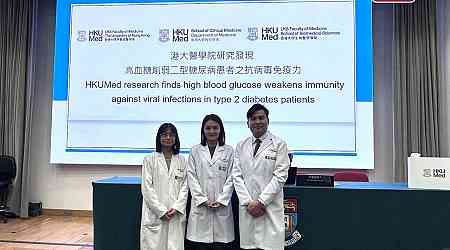A medical research team found that people with type 2 diabetes are more likely to get viral infections, emphasising the importance of keeping blood sugar levels under control for better health. Researchers from the Faculty of Medicine at the University of Hong Kong said on Monday they discovered a connection between high blood glucose levels and reduced immunity to viral infections in patients with type 2 diabetes. They analysed 40 blood samples from people with the condition at Queen Mary Hospital between 2022 and 2023, and found that Th1 cells, immune cells, from patients with poorly controlled diabetes had a significant 40 percent decrease in functionality compared with those from healthy individuals. Dr Paul Lee, one of the researchers, said these patients need to improve their blood sugar management to help reduce the strain on healthcare systems during viral pandemics. He said it is important for these people to ask their clinicians what their glycated haemoglobin (HbA1c) levels are, or what their average blood sugar levels should be. "They should first understand their glycaemic control, their diabetes control. [They should] know about their HbA1c level, in addition to having self-monitoring of their blood glucose, and to see whether their HbA1c level is already at target. If not, I think for those who are actually not very compliant to the medications, please adhere to the medications. And for those who are actually overweight, obese, try to optimise their body weight, improve their lifestyle, [have] more physical activity," he said. "These will all actually improve their sugar control. But of course, for those who have already done their best, they may have to discuss with their clinicians whether they need to add some more anti-diabetic agents to improve their HbA1c target." Lee said the study paves the way for new treatment options aimed at enhancing the immunity of patients with type 2 diabetes.
































